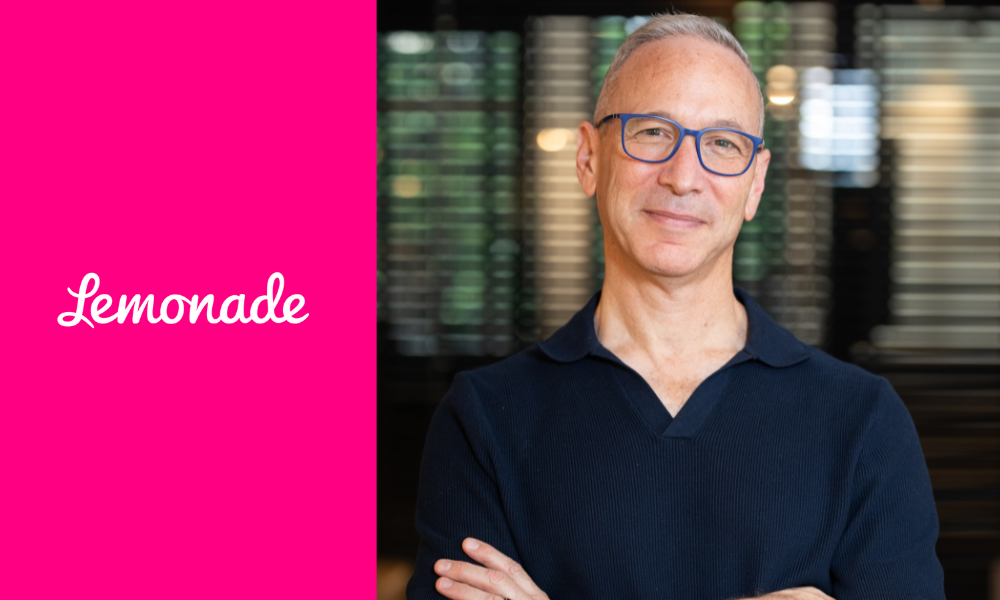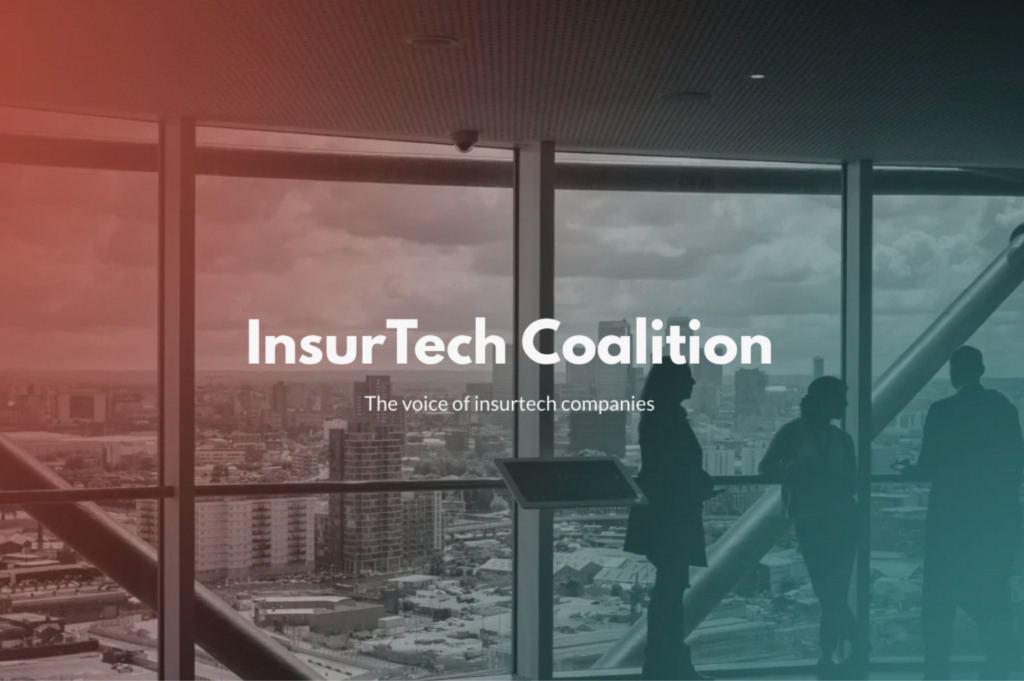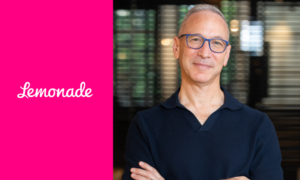Technocrat, entrepreneur, and former lawyer, Daniel Schreiber is one half of the leadership duo heading up Lemonade. With its frothy logo, wholesome social messages and bright pink branding, the company stands out among its much more staid and sensible peers, and is a breath of fresh air – especially when it comes to new solutions and customer services – think the recent two-second claims settlement.
But how did Lemonade come about – and why did Schrieber, (who essentially pursued a career in technology for start-ups for two decades) diversify into the insurance space?
Recently, he also shared that the insurtech is firmly on its path to profitability, despite the inhospitable global climate of the past two years. Insurtech Insights finds out more.
Let’s start with your background. How did the journey towards Lemonade begin? And have you always been into technology?
I’m not an engineer, but I consider myself a techie, particularly as a startup enthusiast.
I started life as a corporate commercial attorney. I went to King’s College London, studied law and got myself a job in a large city law firm. That was 1996 – during the dot.com bubble. It was an exciting time and most of my legal work was in and around technology. I swiftly decided I didn’t want to be a lawyer anymore. I wanted to be an entrepreneur. So, after one year in law, I left and I launched my first startup.
I always say I’m a recovering attorney and I’ve been clean for many years. But I’ve been involved with technology entrepreneurship ever since.
I’ve had experience working in larger companies, including Fortune 500s, primarily focusing on innovation within corporate environments. On the flip side, I’ve also been involved with smaller companies, consistently immersed in that arena.
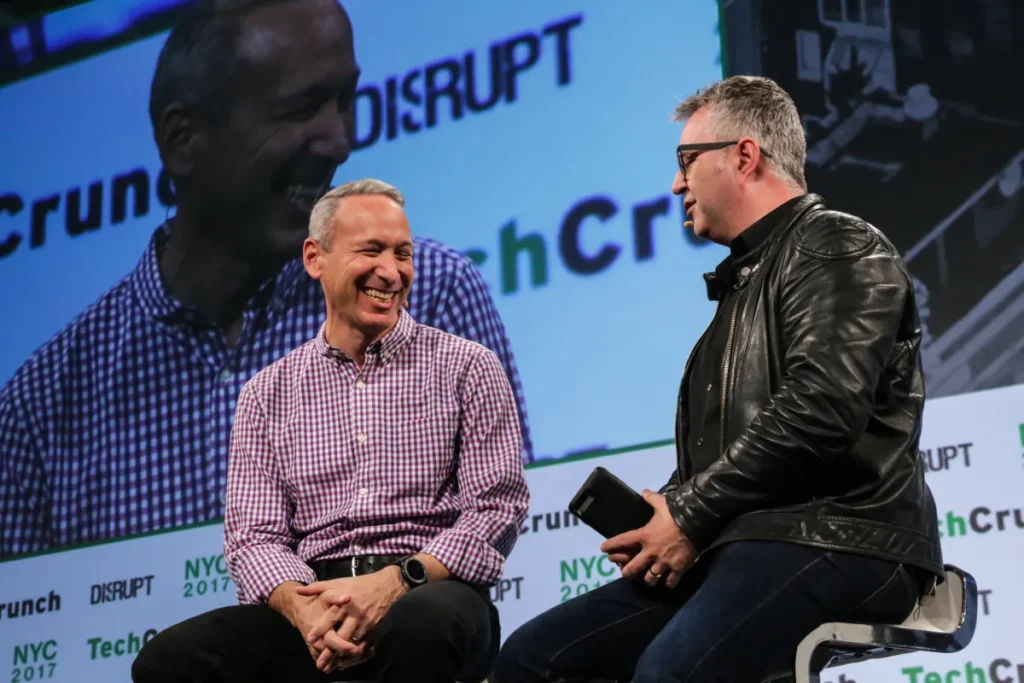
Why did you decide to focus on insurance – having never worked in the industry?
In 2015 – after my stint at Powermat [a company that played a pivotal role in pioneering wireless charging technology] – I found myself thinking about my next venture. I wanted to build something from scratch, a process that, in hindsight, seems structured but felt more like a meandering exploration at the time. With two decades of experience in consumer-centric innovation, I started identifying areas where the full impact of these capabilities were yet to be realised.
Initially I was drawn towards medicine, so I invested time exploring its potential. However, I eventually veered away from it, not due to a lack of belief in its potential – but because major players like IBM, Google, and Apple were already deeply entrenched, creating a competitive landscape that I found unappealing.
Taking a break, I enrolled in an executive course at Singularity University, a futuristic institution in California. During this week-long intensive programme led by top futurists such as Ray Kurzweil and Peter Diamandis, I immersed myself in topics like synthetic biology, the future of AI, and emerging technologies. This experience broadened my horizons and helped me pinpoint where I wanted to dedicate my efforts in the coming years.
During a talk by Peter Diamandis, he mentioned “peer-to-peer insurance” in response to a question. This snippet resonated with me. A couple of months later, I had outlined what would eventually evolve into Lemonade.
Did you let him know his session inspired Lemonade’s creation?
I actually did. I wrote to Peter and I said, ‘Let’s meet up sometime. I’m doing that thing that you spoke about in your lecture.’ And sure enough, a few months later, (by which time Lemonade was funded and off to the races), I met Peter in a hotel lobby in New York. And I’m telling him what we’re doing, and he says, ‘oh, that’s not the kind of thing I had in mind at all!’
He was, in fact, thinking about something entirely different. So I like to say that Lemonade came about due to one big misunderstanding.
How did you come up with the company name and branding concept?
The credit for that goes to my partner, Shai Wininger. He’s an incredibly creative guy and he just pulled it out of the air. But Lemonade made sense in so many ways.
Firstly, it was a play on the Americanism of ‘when life gives you lemons, make lemonade.’
Lemonade has that connotation of turning things around – and insurance is all about that. We felt it also had the connotation of the lemonade stand, like the kids who set up stands selling lemonade to collect for their church or the community – which encompassed the concept of using commerce in order to support causes.
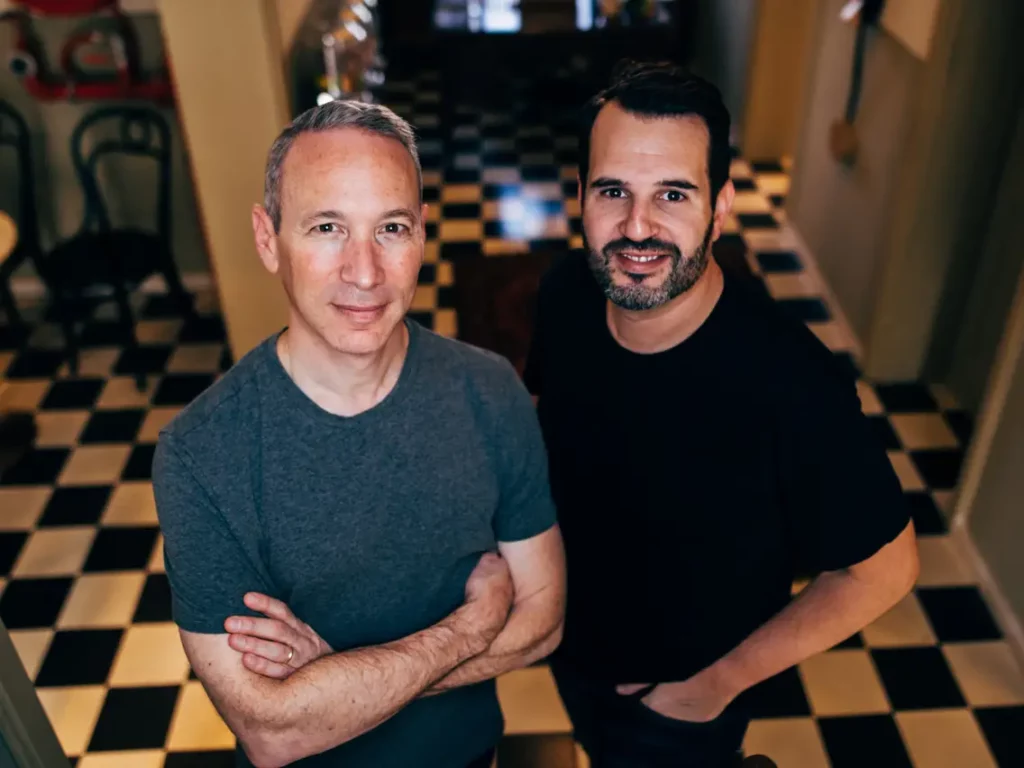
We liked the fact that it wasn’t another three letter acronym – and, in the US, it seems like every insurance company has either got the word ‘state’ or ‘farm’ in it.
Lemonade was something much more jovial and perhaps juvenile. And we did have some early investors who were worried that people wouldn’t insure their home with somebody called Lemonade. But we felt it was very important to be different and to establish a real distance between us and the incumbents.
And that translated over, not only to the name, but to the font as well. Insurance companies generally use every tool available to convey strength and endurance in the stereotypical sense.
The brands are masculine, the fonts are harsh and they’ll either use dark navy or dark red for their colours. We went with a very feminine style with pink as our leading colour. And that not only created a contrast in terms of the look, but also the tonality, which is much more caring.
We have always felt, and this was part of our narrative from the get-go, that people distrust their insurance company, not because they think they haven’t got the wherewithal to pay claims, but because they haven’t got the will to pay claims.
And therefore, merely establishing a huge tower and projecting how rich you are doesn’t give customers comfort that they’re going to get paid. We knew we didn’t have the appetite to build that kind of tower, so we wanted to go with a very different approach.
You built AI into the very fabric of Lemonade’s business model, with AI bots Jim and Maya performing front and central tasks. How is it working out for you?
AI is a foundational element across our entire company, with its impact extending far beyond the visible expressions such as the rapid settlement of claims or the use of the Maya bot for purchasing insurance without human interaction. While these are notable applications, AI plays a significant role behind the scenes as well.
When a consumer engages with Lemonade through our website or app to purchase a policy, our AI system, consisting of about 50 concurrent models, makes predictions about various aspects of the customer. This includes recommending suitable coverages and predicting the customer’s lifetime value, likelihood to churn, probability of making claims, and the potential severity of those claims. This level of predictive analytics is unprecedented in the insurance space.
The integration of AI into our systems, from the AI Maya bot handling policy sales to AI Jim processing claims, enables us to achieve remarkable outcomes.
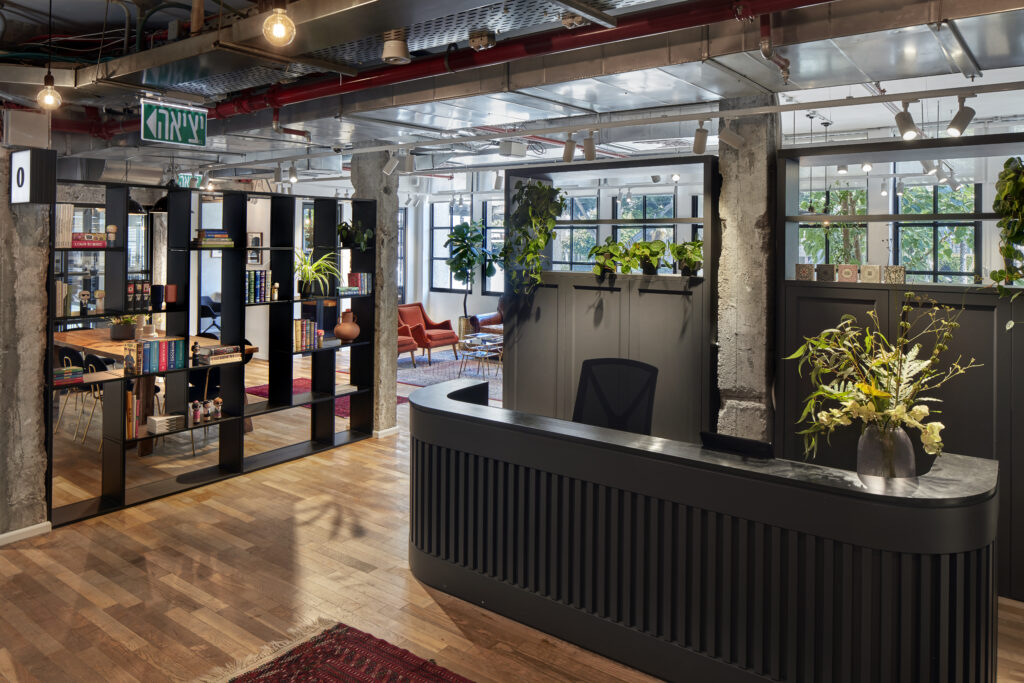
The same central intelligence that supports Maya is used by AI models like Jim, creating a unified system where information is fed into and extracted by the AI. This allows us to perform powerful risk selection, guiding decisions on advertising spending, determining which regions, products, and marketing campaigns are most effective based on real-time predictions of customer lifetime value.
Our belief is that by building a company with a robust foundation in AI, we can continuously benefit from advancements in AI technology. As AI evolves, our architecture ensures that we inherently become better, compared to companies that may have built their systems differently and now rely on off-the-shelf components. This approach aligns with the idea that a rising tide in AI improvements lifts all ships on the built substrate.
Fundamentally, insurance revolves around making predictions, using statistics, probability theory, and data to assess risk and set appropriate pricing. Recognising this, AI, particularly machine learning, represents the cutting-edge form of statistical analysis. Its ability to process large volumes of data and make predictions surpasses human capabilities.
Lemonade has experienced some pretty big highs and lows in the current rollercoaster market. What are the challenges that you’ve faced as a CEO in terms of managing that?
Honestly, I haven’t felt many lows. I know that the stock has gone on a rollercoaster, but I’ve never considered myself as having the job of managing a stock. I’m managing a company.
The things that impact the stock have been outside of the realm of my control. It’s Federal Reserve policies and inflation, interest rates and wars and COVID. And there are huge secular trends and swings that have made growth stocks in and out of fashion with investors.
Overwhelmingly the largest swings in our stock have borne no correlation to our results, so I don’t take them to heart.
We’ve been a public company for 15 quarters now. And we have exceeded our guidance and consensus 15 out of 15 times. So I do try and keep myself and the rest of the team focused on building the business, not managing the stock. And I’ve been surprised how successful I’ve been at doing that for myself.
We founded Lemonade, we launched Lemonade, and we IPO-ed Lemonade with a certain technological vision, about what we could achieve in the realm of insurance. It has always been about the long-term plan.

Is Lemonade’s current reality and position, a different vision to the one you initially had when you launched the company?
When we took Lemonade to IPO, we wrote the Lemonade Founder’s Letter – which laid out our long term plans for the company. Much of what I’m sharing with you now revolves around our commitment to managing Lemonade not just for short-term gains but with a long-term perspective.
Many of the decisions we made, such as establishing our own carriers instead of functioning as an MGA, building our technology stack from the ground up instead of opting for pre-existing solutions, and creating our own brand rather than relying on agents, were all strategic choices aligned with our long-term vision.
These decisions, while imposing a significant upfront cost and effort, were driven by the recognition that they would ultimately yield substantial benefits once we accumulated our own data.
For instance, the challenge of underwriting ourselves was a hurdle unique to our approach, as opposed to the more straightforward path taken by MGAs that leverage existing systems. In essence, these core decisions only make sense when viewed as part of a comprehensive long-term strategy, acknowledging the initial challenges as an investment in future success.
The slow burn approach can be off-putting when it comes to investors. What’s been your experience of that?
The biggest challenge has been effectively communicating to everyone — myself, the board, our employees, and the investor community — that our sole focus is on creating something of enduring value. This stance comes with both good and bad news.
For short-term investors seeking quick results, we are not the ideal stock or company to invest in. However, our firm belief is that the insurance industry, given its vast size, uniquely has the potential to spawn companies that endure for centuries, generating annual turnovers ranging from tens, to over a hundred billion euros, pounds, or dollars. This is a prize we deemed worth pursuing, even if it requires a decade to reach the Promised Land.
The journey, as we anticipated, presents its own set of challenges. The trajectory is U-shaped, necessitating upfront investments before any returns materialise. Selling policies precedes having sufficient data for an effective feedback loop to optimise pricing, resulting in a period of substantial investment with little immediate evidence of success. To navigate this, clarity of purpose is crucial, and the ability to convey this vision persuasively to those upon whom we depend is paramount.
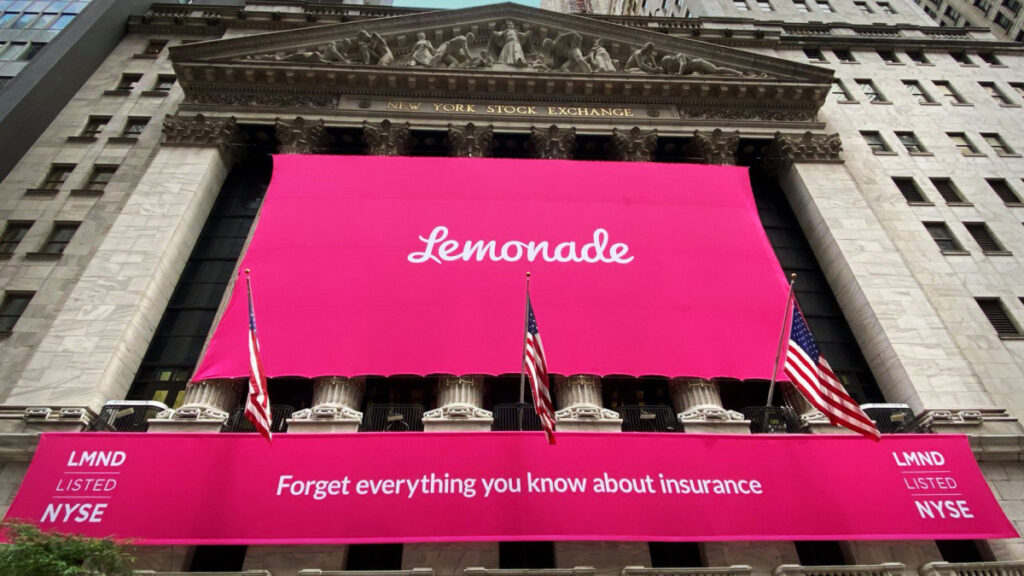
Lemonade has seen a lot of investment success. What strategies have you found to be most helpful in that process?
We actively sought investors who aligned with our ambitious, growth-oriented, and long-term vision. It was crucial for us to be clear with our shareholders that we wouldn’t sacrifice our vision for a quicker path to profitability. Throughout our journey, we consistently communicated this stance, even when growth was out of fashion. This approach allowed us to attract investors who understood and supported our strategy.
One gratifying experience during our IPO roadshow in early 2020 was when some investors brought up the deck I had presented to them five years earlier. They noted that we had not only achieved but exceeded the targets we had set back then. This reaffirmed the importance of having a clear vision and sticking to it as much as possible, even in the face of market fluctuations and changing investor sentiments.
While short-term pivots might make sense, deviating from the long-term vision can come at a heavy price.
Lemonade is an American/Israeli company – and you and your family live in Tel Aviv. Has the current geopolitical situation impacted you all?
I want to highlight two seemingly contradictory but true aspects.
The situation in Israel is undeniably devastating. I conducted a town hall four days after October 7th, and it was an hour-long discussion about the dire circumstances. I’ve spoken publicly about the devastation, which is nothing short of catastrophic.
This week is the first in a while that I haven’t shed tears. The impact is profound, with friends burying their children, and our three adult sons — all in uniform — being directly affected. Our eldest son, who works at Google, was also called up for reserve duty, and even his wife, a medical student, faced disruptions in daily life. The gravity of the situation is staggering, serious, and unparalleled in my lifetime.
Simultaneously, it’s crucial to note that the situation has had almost no impact on Lemonade. We have approximately 1300 employees, with only 300 based in Israel. Our team is distributed widely, and the minority in Israel has proven to be resilient. Visiting our office, you wouldn’t discern the challenges we face personally.
We are well-equipped for remote work as a tech company, and our experience with COVID-19 had already prepared us for this type of scenario. We have robust business continuity plans in place, multiple locations, and distributed teams. This, in a way, provides a sense of comfort during an otherwise dark time, as, from a business standpoint, many aspects of my life have changed, but Lemonade remains unaffected.
Lemonade has recently been involved with the formation of the InsurTech Coalition. Why now? And what are you hoping to achieve?
The InsureTech Coalition, has emerged from a shared conviction that building a company from scratch on a digital substrate, fundamentally transforms the insurance landscape. This transformation, we believe, provides a sustained competitive advantage, a trend that is becoming increasingly evident in our results and is expected to gain momentum in the coming quarters and years.
Companies within the coalition are pioneers at the cutting edge of innovation, leveraging technology to bring about positive changes in insurance, particularly for the benefit of consumers. Unlike traditional companies burdened with legacy systems, distribution through agents, and outdated processes dating back to the eighties, we represent a new era of innovation in the insurance space.
The coalition aims to advocate for the responsible use of technology in insurance, emphasising improvements in consumer experience, fairness, and other aspects that regulators prioritise for consumer protection.
While regulators understandably approach technological advancements with caution, recognising the potential for both positive and negative outcomes, the coalition aims to demonstrate that when used responsibly, these technologies can significantly enhance the insurance industry.
By giving voice to these shared values and goals, the InsurTech Coalition stands in contrast to incumbents content with maintaining the status quo, advocating for a responsible and forward-thinking approach to technology in insurance.
What inspires you in insurtech today?
As an entrepreneur at heart, the startup space is my happy place. Using Lemonade as a reference, I can say that the journey has been truly inspiring. When you asked about challenges earlier, I mentioned the wilderness years or the U-shaped trajectory where, at the beginning, it’s more of a story, and there’s a substantial period before it becomes a reality. It requires sustaining that narrative over time.
Now, however, it’s becoming a reality. Looking at our results from the last quarter, it was one of the first times since our founding that it wasn’t just us predicting what would happen – you could see it in the rearview mirror.
Our path to profitability wasn’t just a promise; it was a tangible reality. Loss ratios were coming down, expense ratios were improving, and we shared statistics about the effectiveness of our lifetime value models. The biggest challenge in the first eight years of the company was seeing the plan come together, and now, the biggest gratification is no longer needing to sustain it with mere conviction and faith; we can point to the results and show that it’s reflecting itself in reality as well.
Interview by Joanna England
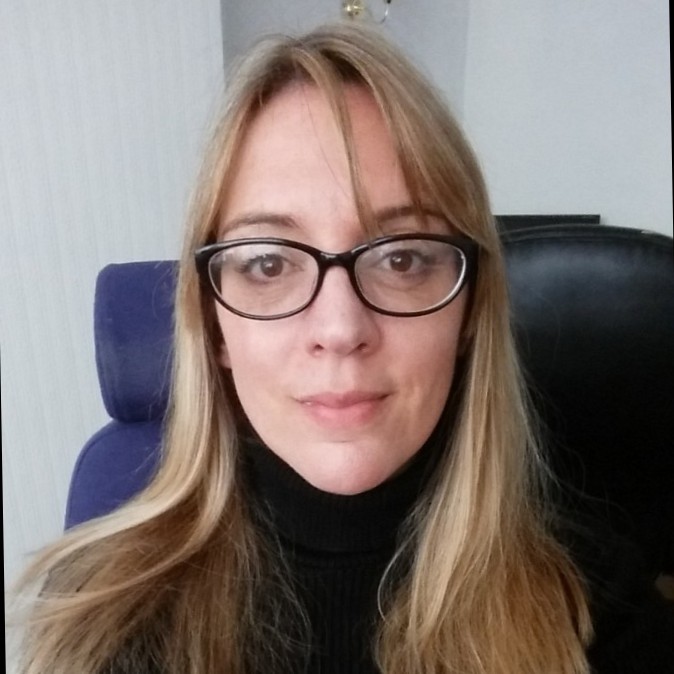
Joanna England is an award-winning journalist and the Editor-in-Chief for Insurtech Insights. She has worked for 25 years in both the consumer and business space, and also spent 15 years in the Middle East, on national newspapers as well as leading events and lifestyle publications. Prior to Insurtech Insights, Joanna was the Editor-in-Chief for Fintech Magazine and Insurtech Digital. She was also listed by MPVR as one of the Top 30 journalist in Fintech and Insurtech in 2023.

